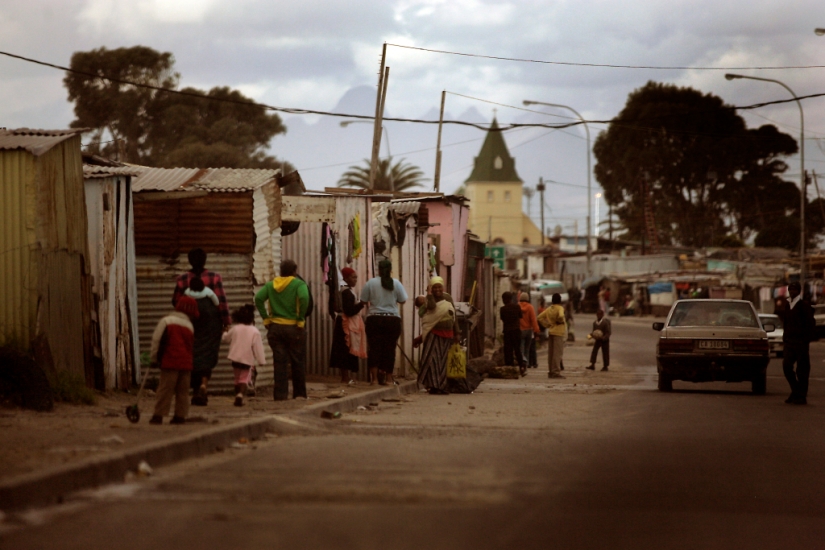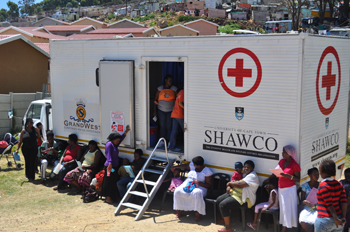As part of my Community Health in Context course, I am required to participate at a service learning site to complete 40 service hours. Since this is a health related course, our service learning site is supposed to help us experience aspects of health care system in Cape Town. I am volunteering with a program at UCT called SHAWCO Health. SHAWCO stands for “Students’ Health and Welfare Centres Organisation” (and yes, they use British English spellings here, which has taken some getting used to when writing essays).
SHAWCO Health is a program mostly for med school students and pre-med school students to have an opportunity to use their clinical skills and learn from a licensed doctor. Every Monday, Tuesday, and Wednesday night, a group of UCT students will take a mobile clinic to a township and provide primary health care for people in that township who cannot afford a private health care doctor or who do not have the time to go to a public health care doctor. In South Africa, there is free public health care for all South African citizens. However, the system is not well structured, so in order to see a doctor it is first come first serve. Doctors see patients daily from 7:30-4:30, but patients will start lining up outside of the clinics hours before opening in order to ensure they are able to be seen. This can be problematic for South Africans who can’t afford private clinics and don’t have the time to spare waiting in line all day at a public clinic. If they work, they may not be able to spare a day at work to come stand in line.
That’s where SHAWCO comes in! SHAWCO clinics visit the townships at night around 6:30pm so that patients who may not be able to take off work to go to the public health clinics or who may not be able to transport themselves to a public clinic then have easier access to health care. A licensed doctor also accompanies all of the med school students to the site to sign off on the final diagnoses, referrals, and prescriptions for the patients.


The past two weeks I have gone with SHAWCO to the township Browns Farm. Here, I am partnered with a UCT medical student and help them take notes and ask the patient questions about their condition. After the med student completes their evaluation and performs any tests necessary (HIV, urine glucose, pregnancy, etc.), they call in the doctor and explain the condition and any findings in order for the doctor to make the final diagnosis of the patient. Once the final diagnosis is made, the doctor prescribes any medication or referrals needed and the next patient is called in.
This has been a really eye-opening experience so far. Being able to learn about the brokenness in the government and public health care system is hard to see. Knowing that the majority of South Africans live under the poverty line, can’t afford to get the health care they deserve, and don’t have easy access to the health care that they can afford is hard to wrap my mind around, but SHAWCO is helping make health care a little more accessible for those who need it. Its also a great exposure to what goes into diagnosing a patient and how the med students communicate with the patients. Although I am not going into general medicine, I will still need to learn these skills for physical therapy. SHAWCO also helps me learn about and experience all aspects of Cape Town during my semester here, instead of only doing “touristy” activities. I am able to learn about the parts of Cape Town that aren’t as picturesque, experience the culture of townships, and meet the people. I am getting a feel for the less well off parts of the city and seeing for myself the stark contrast between the rich and poor. Cape Town is a beautiful city, but some of its history is not so much, and the ramifications are still very present today, affecting the poor and their access to health care. I’ve still got 32 hours of service left to go, and am ready to keep learning about these issues that South Africa, and Cape Town especially, are facing.

